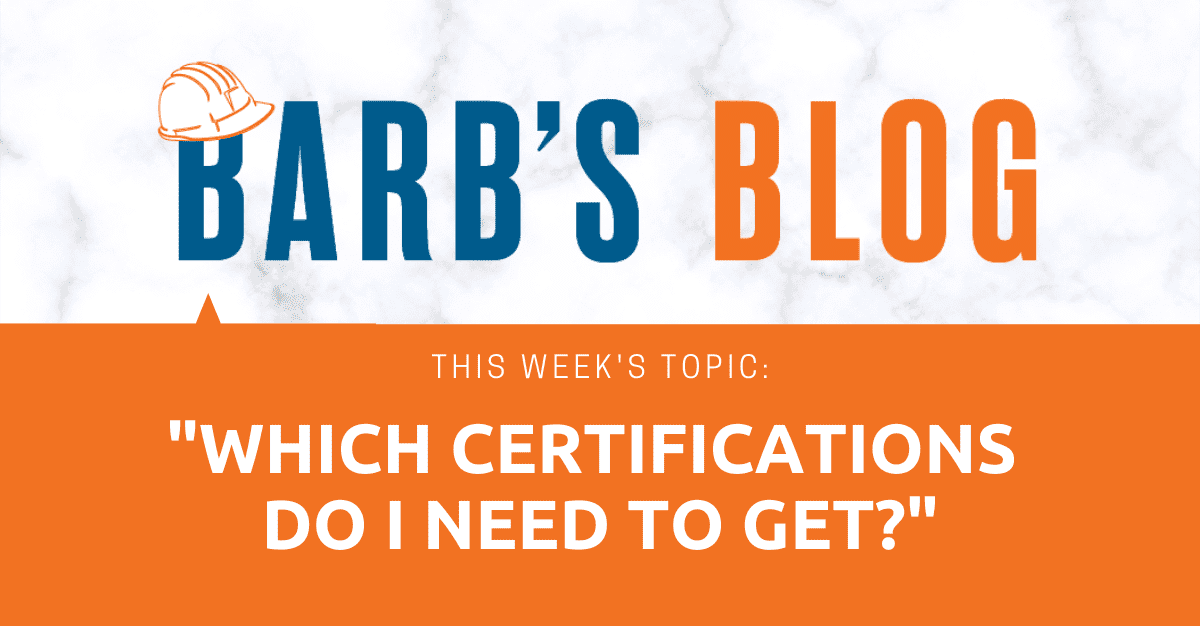
This is part 2 of Barb’s certification series. Click here to read part 1: “You Must Use Me, I’m a Certified Business”.
Did you know that in Minnesota there are 6 women owned business certifications applicable to our industry? Just because you are a woman or minority owned business does not mean that you need to get certified in every program. Each certification is specific to an entity and the requirements of that program. Knowing which certification is recognized on a project you need to follow the funding source. Here are the different certifications (click the title of each to learn more about each certification):
Section 3 is a provision of the U.S. Department of Housing and Urban Development (HUD) Act that promotes economic development, neighborhood economic improvement, and individual self-sufficiency. A Section 3 covered project requires the employment of persons or the awarding of contracts for work, preference must be given to low and very-low-income persons or business concerns residing in the community where the project is located. Section 3 covered projects involve the construction or rehabilitation of housing (including reduction of lead-based paint hazards), or other public construction such as: street repair, sewage line repair or installation, updates to building facades, etc. Section 3 is both race and gender neutral. The preferences provided under this regulation are based on income level and location. Cost: Free.
Central CERT: The CERT Program certifies small businesses (SBE), including small Minority-Owned Business Enterprises (MBE) and small Women-Owned Business Enterprises (WBE). The CERT Program also certifies Emerging Small Business Enterprises (ESBE), which are a subset of the small business marketplace. Central CERT applies to Saint Paul, Hennepin County, and Ramsey County funded projects with goals. The University of Minnesota also recognizes Central CERT to count toward their contracting goals. Each entity that recognizes CERT sets their own goals and has their own requirements. Cost: Free.
Targeted Group Business: The Minnesota Office of State Procurement operates a program for Targeted Group (TG) Economically Disadvantaged (ED) and Veteran-Owned (VO) small businesses. In addition to projects funded and managed by the state, this certification counts towards state-funded programs operated by the Minnesota Department of Transportation and several Metropolitan Agencies. TG/ED/VO small businesses may receive up to 6% preference in bidding on construction projects to the. In addition, the state sets subcontracting goals for TG/ED/VO businesses on construction projects. The University of Minnesota also recognizes Targeted Group Business in their projects. Cost: Free.
Disadvantaged Business Enterprise: Disadvantaged Business Enterprises (DBE) is a small business federal certification that applies to federally funded projects at MnDOT, Metropolitan Council, and the Minnesota Airports Commission. In addition to federally funded projects, the City of Minneapolis recognizes firms certified as DBEs in the MnUCP directory to count towards goals set in their SUBP program for City funded projects. It gets a bit confusing because although Minneapolis refers to their subcontracting goals as MBE or WBE you must be certified as a DBE for their program. Cost: Free.
Federal Woman Owned Small Business: To provide a level playing field for women business owners, the government limits competition for certain contracts to businesses that participate in the Women-Owned Small Business (WOSB) Federal Contracting program. These contracts are for specific industries where WOSBs are underrepresented. Some contracts are restricted further to economically disadvantaged women-owned small businesses (EDWOSBs). Joining the WOSB Federal Contracting Program makes a business eligible to compete for federal contracts set aside for the program. Cost: Free.
WBENC: WBENC Certification (WBE) is a national certification for women-owned businesses in the U.S. WBE certification through WBENC is recognized in corporate supply entities such as Target, Cargill, 3M and more for their supplier Diversity program. Once certified you can partake in WBENC networking and education programs and have access to supplier diversity and procurement executives at hundreds of major U.S. Corporations that accept WBENC certification. Cost: Annual fee based on revenue.
The first thing you need to do is to decide if a certification will benefit you based on who your client is. If you are in Virginia, MN and do not work in St. Paul, Hennepin or Ramsey Counties then getting CERT certified is not needed. (Note: it is better to have a certification and never need it, then have a contractor ask you for your certification if you are bidding a project and you don’t have it.)
Once you determine if you need a certification then you need to spend time ensuring you meet the requirements for that program. One thing that is common between all the certifications is that you need to be 51% or more owner of the business and CONTROL the day-to-day operations. This requirement is intended to keep businesses from just putting the business in a woman’s name only. She MUST control the business.
We suggest that if certification is beneficial to your business that you apply for all entities at the same time. About 5 years ago Central CERT, MnUCP and Targeted Group Business created the Minnesota Small Business Certification Portal so that you can upload your documentation and apply for certification in all 3 programs in one place.
Once you received a certification you will need to recertify every 1-3 years. Please ensure that you pay attention to your recertification dates and send in your required information or affidavit of no change in a timely manner to avoid a lapse in certification. Remember that entities need to process your paperwork so allow for plenty of time.
Lastly, if you need assistance with the certification process, we recommend connecting with Minnesota Procurement Technical Assistance Center (PTAC). Here you will find advisors that can work with you through certification, answer questions about government contracting, help you with the various portals and of course navigating the many different acronyms in this space.
Be sure to tune in for next week’s blog where I will be addressing “good faith efforts“.
— B
